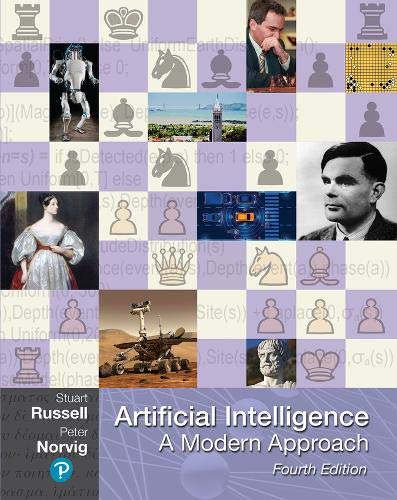Stuart J. Russell and Peter Norvig, Artificial Intelligence: A Modern Approach
A classic in the literature on artificial intelligence, appreciated for its balanced and precise presentation and for the breadth and depth of content. This new edition reflects the changes that have emerged in the sector in recent years: in fact, there have been numerous scientific and technological advances in fields such as voice recognition, automatic translation, autonomous vehicles, home automation and information extraction from the Web. All topics, therefore, have been up-to-date and in-depth, from the types of knowledge representations an intelligent agent can use to planning, from data mining on the web to learning algorithms.
https://en.wikipedia.org/wiki/Artificial_Intelligence:_A_Modern_Approach
- Part I: Artificial Intelligence – Sets the stage for the following sections by viewing AI systems as intelligent agents that can decide what actions to take and when to take them.
- Part II: Problem-solving – Focuses on methods for deciding what action to take when needing to think several steps ahead such as playing a game of chess.
- Part III: Knowledge and reasoning – Discusses ways to represent knowledge about the intelligent agents’ environment and how to reason logically with that knowledge.
- Part IV: Uncertain knowledge and reasoning – This section is analogous to Parts III, but deals with reasoning and decision-making in the presence of uncertainty in the environment.
- Part V: Learning – Describes ways for generating knowledge required by the decision-making components and introduces a new component: the artificial neural network
- Part VI: Communicating, perceiving, and acting – Concentrates on ways an intelligent agent can perceive its environment whether by touch or vision.
- Part VII: Conclusions – Considers the past and future of AI by discussing what AI really is and why it has succeeded to some degree. Also discusses the views of those philosophers who believe that AI can never succeed.







